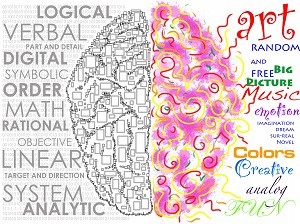Tag Archives: context
10 Jun Survival of the Fittest Knowledge

Genetic Algorithms in Search I think we can safely assume that intelligent applications, including accurate language interpreters and translators, will possess large amounts of knowledge to be processed and searched. Genetic algorithms are great for searching for obscure data in massive search spaces. The mechanism for association in computers can be defined as searching, just as humans describe their […]
09 Jun In Search of Depth and Breadth

Depth-First Search Search is one of many functions needed in intelligent systems. Web search in systems like Google, Bing, Yahoo and Alta Vista use complex algorithms to help you find the information you want based on words. Words are patterns of letters strung together in a unique way. Searching is a kind of pattern matching. […]
05 Jun Intelligent Traveling Salesmen

Another Sample Problem Several specific reasoning or inference problems have provided fodder for AI textbooks and experiments. One of these is the traveling salesman problem (Get an explanation and an example applet here): Given a traveling salesman who must get to x number of cities, find the shortest route the salesman can travel to reach […]
03 Jun Distributed Knowledge Representation

Distributed KR Knowledge representation schemata may be top-down, or bottom-up. In a top-down approach, one would define an area or domain of knowledge, then list the concepts within the domain and their attributes. Behaviors within the domain are often defined by that domain, and the concepts may not be able to exist independently. This approach helps enforce a […]
02 Jun Framing Formal Logic

Formal Logic Formal logic often uses set theory. Set theory uses existential (an assertion that something applies to some members of a set) and universal (a statement that applies to all members in a set) quantifiers. Despite the utility and noncommittal correctness of existential quantifiers, set operations using existential quantifiers are weaker then those using universal quantifiers. The […]
28 May Data and Modeling

Data modeling is essential in the early stages of any information system design. By moving toward a data-centered model, we can make our data, and our system, smarter. There are many data-modeling techniques, but we will focus on two for now: Entity Relationship Diagramming (ERD), and Object Role Modeling or object relational modeling (ORM). Entity […]
27 May Machine Components for Intelligence

If an abacus or a log and rope can be considered intelligent machines, then we can decompose their parts, possibly rearrange them, and get different kinds of intelligent machines. I know this is an extreme example of absurd reasoning. Let’s go from the opposite direction in the complexity spectrum. Can we use the human brain and its parts as […]







